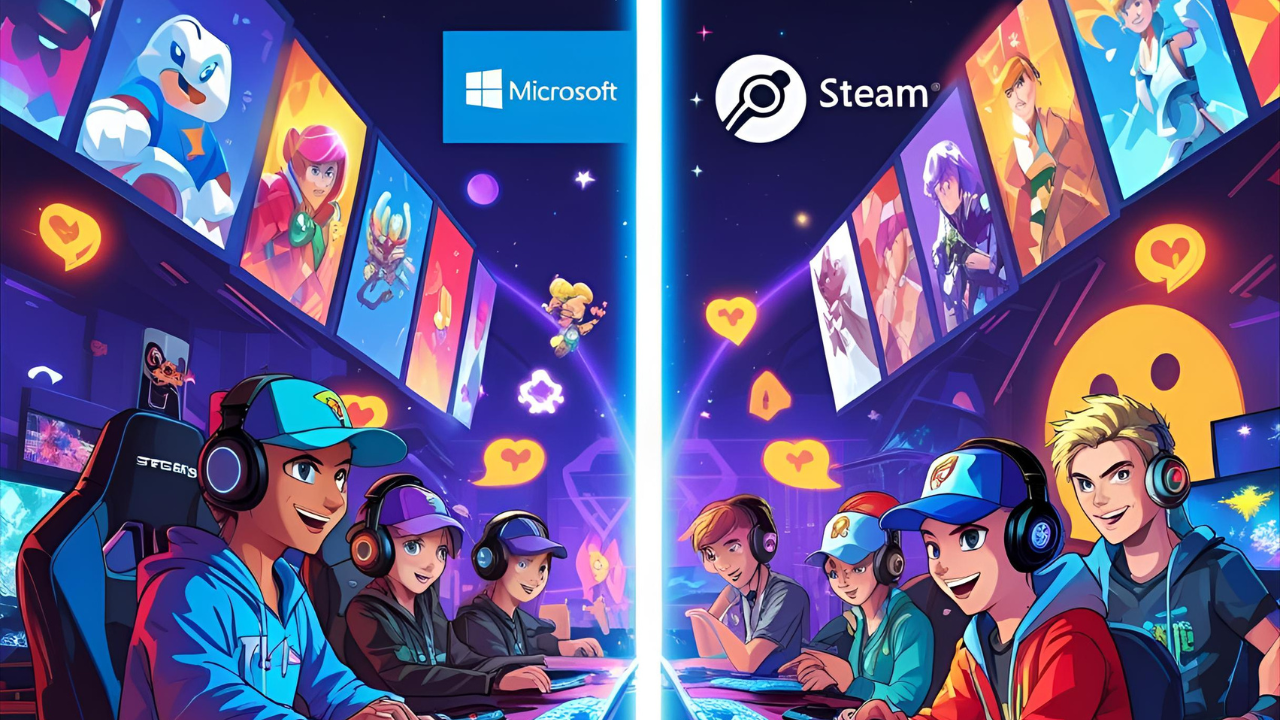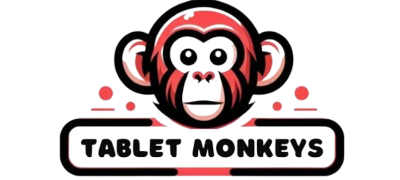Microsoft Store vs Steam: Which Platform is Right for You?

Windows is the undisputed king of PC gaming, and when it comes to buying games, two major players dominate the market: Microsoft Store and Steam.
If you're a gamer looking to expand your collection, you might be wondering which platform is the better choice. In this article, we'll take a closer look at the features and offerings of both platforms to help you make an informed decision.
User Interface
The user interface of the Microsoft Store is clean and visually appealing. It features large images and easy-to-read fonts, making it easy to navigate and find what you're looking for.
On the other hand, Steam offers a more functional interface that caters specifically to gamers. It includes features like game trailers that play automatically when you hover over a game, tags to help you discover similar games, and in-depth game statistics like hours played and achievements.
While the Microsoft Store looks more beautiful, Steam offers a more comprehensive gaming experience.
Gaming Library
You can access your installed and paid games in a library offered by both Steam and the Microsoft Store.
But Steam goes above and above by giving you comprehensive in-game data and the ability to sort games using a variety of filters. In addition, it provides extra features like content downloads and a community area where you may communicate with other gamers.
The Microsoft Store is still a good alternative for getting your games, even though it lacks several features and filtering choices.
Community and Friends
Steam's Community section is a standout feature, offering a wealth of user-generated content such as guides, news, artwork, and videos.
Steam also has a dedicated mobile app called Steam Chat, which allows you to connect with friends, manage invites and groups, and engage in text messaging or voice chats.
While Steam Chat doesn't quite match up to platforms like Discord, it still provides a decent social experience. If you prefer a more robust social gaming experience, you may want to consider Discord.
Community Market
When playing games, we can win and unlock a variety of in-game goodies. With all these goodies, what should I do?
To obtain discounts when purchasing a new game, Steam users can sell them on the community market for actual money. The proceeds can then be used to purchase in-game stuff. That is really awesome.
Just look for comparable things that were listed or sold for on the marketplace to get an idea of the selling price. I sold most of my stuff, and I used the money left over to purchase the Witcher series.
For whatever reason, it seems like no one is interested in my Range Rover. Remember to look over the Inventory section.
Gaming Currency and In-Game Purchases
Both platforms handle gaming currencies differently, offering various options for in-game purchases and virtual currency management.
Microsoft Store Gaming Currency
The Microsoft Store utilizes several gaming currencies across its ecosystem:
Microsoft Points and Gift Cards:
- Microsoft Gift Cards can be used across the entire Microsoft ecosystem
- Supports Xbox Game Pass subscriptions and in-game purchases
- Direct integration with Xbox rewards program
Platform-Specific Currencies: Microsoft Store hosts games with their own virtual currencies, including popular titles like Minecraft. For players looking to purchase Minecraft's virtual currency, having access to a reliable Minecoins to USD calculator can help determine the exact value of their purchases before committing to a transaction.
Key Features:
- Seamless integration with Xbox Live Gold and Game Pass
- Family sharing options for purchased content
- Automatic currency conversion for international users
Steam Gaming Currency
Steam offers a more centralized approach to gaming currency:
Steam Wallet:
- Universal currency system that works across all Steam games
- Funded through credit cards, PayPal, or Steam gift cards
- Regional pricing adjustments for global accessibility
Community Market Integration:
- Sell in-game items for Steam Wallet funds
- Purchase items from other players using Steam currency
- No real money withdrawal, keeping funds within the Steam ecosystem
Third-Party Currency Support: Steam also supports games with independent currency systems, providing secure payment processing for titles that use their own virtual economies.
Currency Comparison
| Feature | Microsoft Store | Steam |
| Universal Currency | Microsoft Points | Steam Wallet |
| Market Trading | Limited | Extensive Community Market |
| Real Money Conversion | Gift cards only | No withdrawals |
| Family Sharing | Yes | Limited |
| Regional Pricing | Automatic | Manual by developers |
Managing Gaming Expenses
Both platforms offer tools to help users track and manage their gaming currency spending:
Microsoft Store:
- Spending limits and parental controls
- Detailed purchase history
- Monthly spending reports
Steam:
- Purchase history with filtering options
- Market transaction logs
- Third-party budget tracking integrations
Understanding gaming currencies is crucial for making informed purchasing decisions, especially when dealing with games that have complex virtual economies or multiple currency types.
Exclusive Content
The Microsoft Store benefits from its association with Xbox Game Studios, offering exclusive access to popular titles like the Forza Horizon series.
Additionally, the PC Game Pass, available through the Microsoft Store, provides access to a wide range of best-selling games for a monthly fee, including titles from Riot Games and EA Play.
Steam, on the other hand, lacks a membership system but offers a diverse selection of games from various developers.
Deals and Discounts
Both the Microsoft Store and Steam regularly run sales and offer discounts on games. The prices may vary depending on the season and specific deals available.
It's worth noting that Steam takes a 30% cut from game developers, while Microsoft only takes 12%. This difference in revenue sharing has allowed Microsoft to offer competitive prices and attract developers to its platform.
Steam vs Microsoft Store Comparison
| Feature | Microsoft Store | Steam |
| User Interface | Clean, visually appealing | Functional, gamer-focused |
| Gaming Library | Basic organization | Advanced filtering and stats |
| Community Features | Limited | Extensive community hub |
| Market Trading | No | Yes, Community Market |
| Exclusive Content | Xbox Game Studios | Wide variety of developers |
| Subscription Service | PC Game Pass | None |
| Developer Revenue Share | 88% (12% platform fee) | 70% (30% platform fee) |
| Gaming Currency | Microsoft Points system | Steam Wallet |
Conclusion
The choice between Microsoft Store and Steam ultimately depends on your gaming preferences and priorities. If you value exclusive Xbox content, PC Game Pass, and a clean interface, the Microsoft Store might be your best bet. However, if you prioritize community features, market trading, and a vast library with extensive filtering options, Steam is likely the better choice.
Consider your gaming habits, the types of games you enjoy, and how important features like community interaction and virtual currency management are to your gaming experience before making your decision.

Jim's passion for Apple products ignited in 2007 when Steve Jobs introduced the first iPhone. This was a canon event in his life. Noticing a lack of iPad-focused content that is easy to understand even for “tech-noob”, he decided to create Tabletmonkeys in 2011.
Jim continues to share his expertise and passion for tablets, helping his audience as much as he can with his motto “One Swipe at a Time!”
